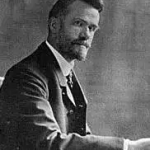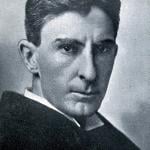The following is an interview with Tisha M. Rajendra (Ph.D.), author of Migrants and Citizens: Justice and Responsibility in the Ethics of Immigration (foreword by Daniel G. Groody, CSC). The book was just released by Eerdmans. Dr. Rajendra is associate professor of theological ethics at Loyola University Chicago. Here is my endorsement for the book:
“Political machines and media outlets bombard us with stories about migrants here and abroad. Though once supposedly hidden from sight, we are confident we now know what these ‘strangers and aliens’ are like based on the evening news and sound bites. In reality, however, we interact with migrants here and abroad regularly, and in manifold ways. If anything, what was hidden were the narratives that reflect our relational responsibility and solidarity with migrants as citizens of various nation states. Migrants and Citizens: Justice and Responsibility in the Ethics of Immigration is an important new work. Not only does Tisha Rajendra tackle one of the most pressing social issues here and abroad—immigration reform, but also she calls for reforming our models of justice pertaining to migrants. Moreover, Migrants and Citizens exposes and reforms our understanding of who we really are as human beings. A prophetic and revealing work.”
Paul Louis Metzger (PLM): Dr. Rajendra, what led you personally and as a theological ethicist to address this pressing issue?
Tisha M. Rajendra (TMR): Personally, I am an immigrant myself and the child of immigrants. My parents, born in Sri Lanka, met and married in Canada, where I was born. We came to the US when I was three. I became a US citizen when I was eight years old. Though my professional-class parents were endowed with Master’s degrees, they always made it clear that they stood in solidarity with all immigrants, especially those who came to this country with far less than we did. Many other Sri Lankan Tamils fled Sri Lanka as refugees, so the Sri Lankan civil war was always in the background throughout my childhood.
This book in some ways stands at the intersection of my personal identity and my professional work. When I started thinking about the ethics of immigration as a graduate student back in 2005, there was literally only one book on Christian ethics and immigration. Now, there are hundreds. Professionally, the driving insight of this book is that Christian ethics as a whole has ignored what has long been obvious to me as an immigrant and to migration theorists: that migration is the result of some kind of relationship between countries of emigration and countries of immigration. One entire branch of my family lives in the United Kingdom, along with hundreds of thousands of other South Asians, in part because almost the entire Indian sub-continent was once a British colony! The kinds of relationships between migrants and citizens in the United States are different, but these relationships also drive migration in some way.
PLM: What specifically do you find problematic about the mainstream or dominant models of justice pertaining to migrants?
TMR: Often, when we talk about human rights, there is the presumption that we are all citizens of nation-states that are willing and able to protect and defend human rights. Social welfare programs that ensure access to education, health care, food, and shelter are administered by states. But migrants are among those who slip through the cracks. Protection of their human rights has a high political cost because the citizens of western liberal democracies do not consider them to be a part of the social contract. Other models of justice are universalist in that they focus on the human rights of every person regardless of immigration status or country of origin. However, I find that such models neglect to address the all-important question of who has the responsibility to protect the human rights of specific groups of people.
PLM: What is your central thesis and the unique feature(s) of your argument?
TMR: The central thesis of my book is that we need a new account of justice that can respond to relationships that cross international borders. I call this account of justice “justice as responsibility to relationships.” This account of justice is loosely based on an account of justice that emerges from the Exodus narrative and the legal materials from the Hebrew Bible, but is adjusted for a secular context and our time.
PLM: Our lack of understanding of migrants exposes our lack of understanding of our own stories and histories, as well as our diverse and complex forms of relationship with them. How so?
TMR: The dominant narrative of migration is that immigrants come “here”—or to wealthy liberal democracies seeking “a better life.” While this is true in some ways, migration theorists posit that mass migration always occurs in the context of pre-existing relationships initiated by host countries. Most often, these relationships are not morally neutral. Colonialism, guest worker programs and economic interventions are asymmetrical relationships that benefit host countries at the expense of citizens of receiving countries. Often, these interventions start “migration flows” into host countries. But citizens of host countries often think that migrants are strangers—poor people who arrive unbidden, clamoring for a share in our social goods. Nothing could be further from the truth! If we knew our own history—of colonialism in the Philippines, of military intervention in Central America, of the ways that economic intervention didn’t just take jobs away from our factory workers—it destabilized parts of rural Mexico—we would not consider migrants strangers.
PLM: Please address how a relational ethical model arising from Christian Scripture can help us move forward in more meaningful and constructive ways in engaging the migrant and addressing immigration reform.
TMR: The parts of Scripture most important for my project are the legal materials from the Hebrew Bible that concern the “ger”—often translated stranger, or, more accurately, resident alien. You shall not oppress a resident alien. The resident alien should be as a citizen to you. You shall love the resident alien. Many Christian ethicists have drawn on these materials in order to construct norms about how we should treat immigrants. However, I am more interested in the fact that these laws are nearly always connected to a reminder that the Israelites themselves were once “gerim”—strangers—in the land of Egypt. In other words, these legal materials are not abstract norms. They are norms that are only intelligible in the narrative of the relationship between God and Israel. It’s always complicated to derive norms from Scripture that are intended to guide a political ethic today, but I think that this insight, that our common narratives have norms in them about how we distribute responsibilities and to whom, is worth retrieving today.
PLM: What would be two or three takeaways from the book that you hope readers would integrate into their lives as they consider migrants and immigration reform?
TMR: Americans live together with immigrants who take care of our kids and our elderly, who harvest our vegetables and who build our homes. Get to know them. Listen to their stories. Think about how their stories and the stories of their countries intersect with our own story and the history of our country.
Challenge false narratives whenever you hear them, such as “They’re lazy” and “They take our jobs.” I don’t address how we, as a society, can turn false narratives into true ones in the book. Having said that, it is precisely because these narratives are so deeply embedded that they are so hard to challenge. However, I do believe that our welfare as a society and as a world depend on challenging the false narratives where we see them and presenting truer narratives.
PLM: In addition to reading your important new volume, what else would you encourage readers to research and engage on this subject?
TMR: Several ethnographers have done great work in telling new and truer stories that get to the complexities surrounding immigration in the United States:
Becoming Legal: Immigration Law and Mixed-Status Families by Ruth Gomberg-Muñoz answers the all-too-common question: “Why don’t they just become legal?”
Detained and Deported by journalist Margaret Regan illuminates the horrifying reality of the US detention and deportation system.
Two works by Salvadoran journalist Oscar Martínez tell of both the conditions of gang violence in the Northern Triangle of Central America and of the terrifying journey that migrants take to arrive in our country. These works are The Beast and A History of Violence.













